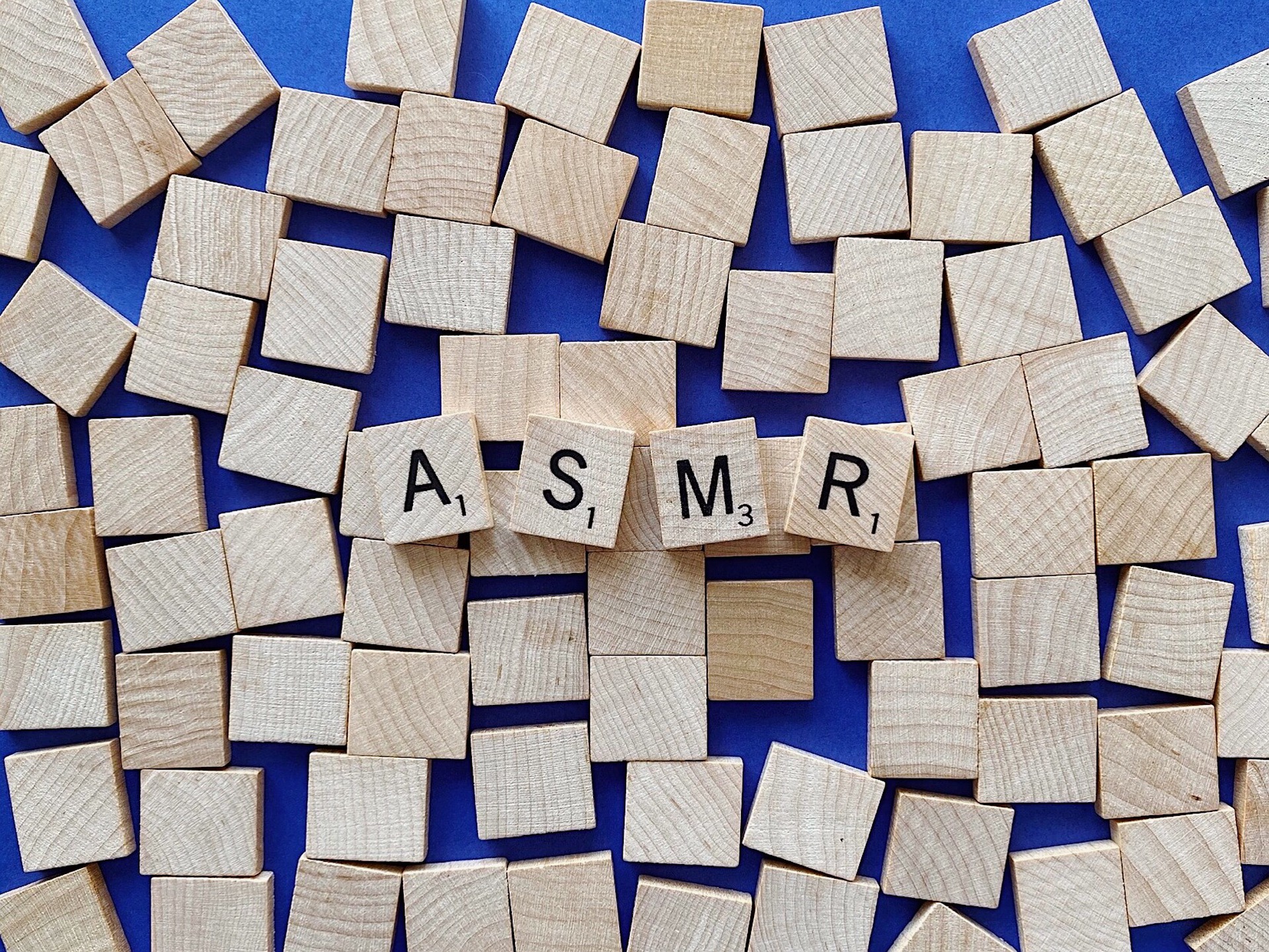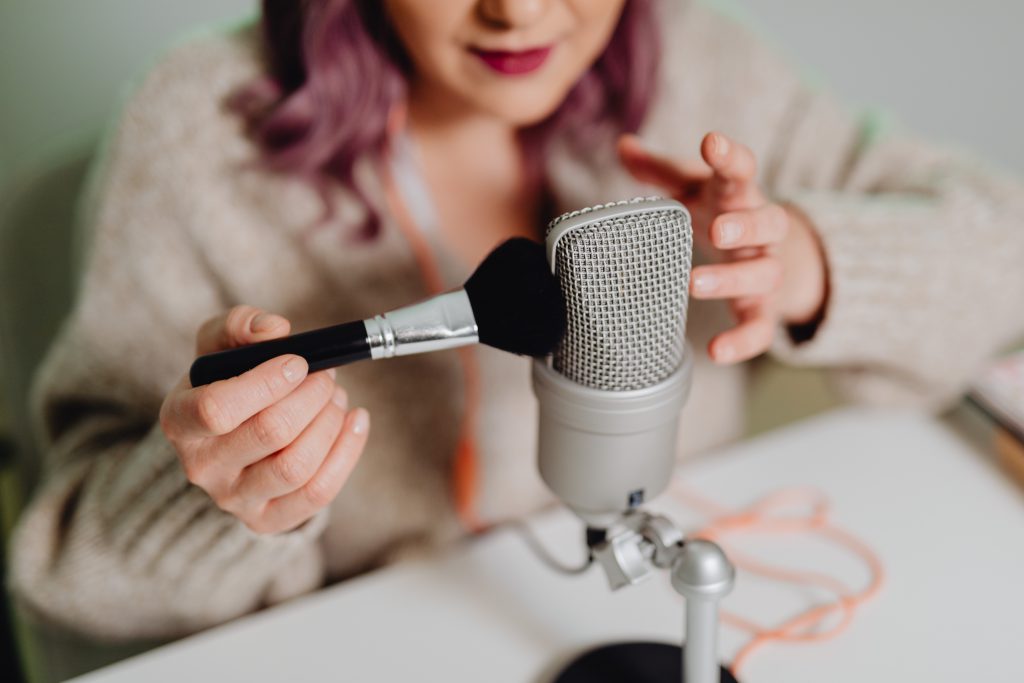What Does ASMR Stand For? A Well-being Approach

Content
Do you find the sound of rain soothing? What about construction noise or a kettle? You’ll be surprised by the power of sounds on our sleep and mental well-being. And today, you will discover what does ASMR stand for.
This modern term appeared in 2010 and then exploded on the internet. Maybe you first came across it on YouTube, heard it on a podcast, or in a conversation. But did you know it’s also linked to meditation? Let’s discover more.
What does ASMR stand for?
ASMR stands for “Autonomous sensory meridian response,” a term coined by Jennifer Allen in 2010 to describe a physical and emotional phenomenon shared by people around the world.
Allen noticed a strange, yet pleasurable, tingling sensation throughout her body that made her feel happy and relaxed in response to certain stimuli. When trying to identify the sensation on the internet, she found no answers but she did find that many people described similar experiences, and so she herself gave the phenomenon the name.
What does ASMR feel like?
The ASMR experience has both physical and psychological aspects to it. People describe the experience as a pleasurable, tingling sensation starting at the top of the head and moving down the spine into the rest of the body, often in the form of waves.
It’s often described as a “brain orgasm” and is very similar to the goosebumps and tingling feelings of excitement we experience when listening to really good music. However, these “aesthetic chills” are associated with excitement, whereas ASMR induces a feeling of deep relaxation. And this is exactly why we’re talking about ASMR, as it’s not only an enjoyable physical sensation but also includes an emotional response of deep relaxation, which can have a positive influence on our psyche, helping to improve our mental well-being.

Why Do People Like ASMR?
ASMR induces a deep sense of calm and many people expose themselves to ASMR-inducing stimuli to destress, relax, or unwind at the end of the day. Some people also use ASMR to help them fall asleep.
Don’t forget our sleep changes with time. So if you need to listen to ASMR to fall asleep at some point, it’s completely normal.
We know that ASMR gives us a pleasurable tingling sensation that can help us feel less anxious, more relaxed, and happier, but have you ever wondered why that is? Well, it turns out that ASMR activates parts of the brain associated with reward, social bonding, and emotional excitement. All things that make us feel warm, safe, and happy!
What Does ASMR Do To Your Brain?
ASMR can be triggered by all kinds of stimuli, whether auditory, visual, or tactile. However, what they all have in common is that they tend to be soft, gentle, and often repetitive in a soothing manner.
You may have seen videos of people talking in quiet, melodic voices, slowly turning the pages of a book, or pretending to gently stroke your ear. However, sadly not everyone experiences the pleasures of ASMR, and the people who do may respond to different stimuli. These are some of the things it generates:
- Relaxation: Many people report feeling relaxed and calm while experiencing ASMR. This may be due to the soothing nature of the stimuli, which can help reduce stress and anxiety.
- Tingling Sensation: Some individuals experience a tingling sensation, often described as a “tingling” or “shiver,” typically starting on the scalp and then moving down the spine. This sensation is thought to be a key component of the ASMR experience.
- Improved Mood: ASMR may contribute to an improved mood for some individuals. The calming and pleasurable sensations associated with ASMR videos could have mood-enhancing effects.
- Sleep Induction: Many people use ASMR videos as a sleep aid. The relaxation induced by ASMR content may help some individuals fall asleep more easily.
- Attention and Focus: Some people find that ASMR helps them concentrate or focus on tasks. This effect is not universal, and individual responses to ASMR stimuli can vary.
However, many people experience ASMR in response to stimuli that seem completely unappealing to others. Have you ever come across videos of someone eating food, slurping and chewing, and thought to yourself, “Who on earth would want to watch this?” Well, it turns out that many people enjoy watching other people eat and that’s because it can trigger ASMR for certain people.
Other stimuli that can seem unpleasant, such as nail tapping, a sharp pencil scratching paper, or bubbles popping, also can trigger ASMR in some people. So how can the same stimuli drive some people crazy, while creating a satisfying calmness in others?

Why do some people experience ASMR when others do not?
Sadly, we have no clear answer, however, brain wiring and personality traits could play a role.
Brain Wiring
Until recently, the phenomenon of ASMR has been based on people sharing their own experiences. In the last decade, brain-imaging techniques have been used to analyze and measure what goes on in the brains of people experiencing ASMR and have shown that there’s a unique pattern of brain activity during the experience.
Did you know that when people experience ASMR there’s an increase in alpha brain waves in the brain? These waves are associated with deep relaxation and are often experienced when meditating!
For people who don’t experience ASMR, the same stimuli can result in a decrease in alpha brain waves, which may explain why the same stimuli can result in a pleasurable ASMR experience in some people and trigger an uncomfortable sensation in others.
Some people also show more activity in parts of the brain that produce an emotional reaction in response to visual triggers. This could explain the stronger connection between external triggers and emotional responses and why in these people certain visual triggers can induce the deep feeling of relaxation and pleasure experienced during ASMR.
Personality
There seems to be some evidence that the ability to experience ASMR is linked to certain personality traits, such as empathy. However, having certain personality traits doesn’t necessarily mean you’ll experience ASMR.
ASMR, Meditation, & Mindfulness
These three all link together rather nicely! Just wait and see…
ASMR and meditation have many overlapping characteristics, including changes in brain wave activity associated with deep relaxation and changes in states of consciousness. The experience of ASMR has even been compared to flow states experienced in certain meditations!
However, entering these states of meditation often requires a conscious focus, whereas ASMR is an automatic response to certain stimuli. We can almost say that ASMR is a form of meditation ‘lite.’
If you’d like to try it, here you have one hour of ASMR for free:
We also know that there’s a link between people who experience ASMR and increased mindfulness, just like in meditation! Whether this means that regularly experiencing ASMR increases mindfulness we don’t know, but it definitely won’t hurt you to get some more ASMR in your life if you’re lucky enough to experience this pleasurable feeling!

The Benefits of ASMR: Body & Mind
As the ASMR experience has both physiological and emotional components, it can have positive effects on your body and your mind!
Just like meditation, the calming effects of ASMR can reduce your heart rate. Increased heart rates have been associated with increased blood pressure and cardiovascular disease. Therefore, regular relaxation using ASMR could potentially reduce your risk of suffering from cardiovascular diseases, something meditation has already proven to be capable of according to Harvard Professor Dr. Bhatt.
Additionally, ASMR can reduce psychological stress, which in turn reduces the physiological stress response, keeping your mind and body at ease.
All in all, if you’re lucky enough to be able to experience ASMR, it can only do you good, both physically and mentally. So why not try and incorporate a little more ASMR into your life? Maybe that means it’s background noise while making breakfast to start the day or as a way to help you fall asleep at night. And if this is a completely new phenomenon to you, why not explore the world of ASMR and see if you too can experience the wonderful, relaxing pleasures of ASMR!
Author: Leah Maddalena Singer-Pennell


Incredible what young people are learning these day. Really important information!
very interesting! Thank you 🙂